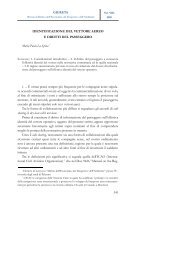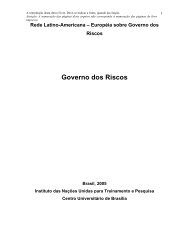Rome II and Tort Conflicts: A Missed Opportunity Abstract Contents
Rome II and Tort Conflicts: A Missed Opportunity Abstract Contents
Rome II and Tort Conflicts: A Missed Opportunity Abstract Contents
You also want an ePaper? Increase the reach of your titles
YUMPU automatically turns print PDFs into web optimized ePapers that Google loves.
SYMEON C. SYMEONIDES ROME <strong>II</strong> AND TORT CONFLICTS<br />
phrased in global terms, it would m<strong>and</strong>ate the application of Austrian law to all<br />
aspects of the case. This problem is made worse when, as in the Italian, Quebec, <strong>and</strong><br />
113<br />
Polish codifications, the rule is not subject to any escapes. <strong>Rome</strong> <strong>II</strong>’s rule is subject<br />
to two escapes: the “closer connection” clause of Article 4(3), <strong>and</strong> the possibility that<br />
the court may “take account” of the “safety <strong>and</strong> conduct” rules of the conduct state<br />
under Article 17. Unfortunately, as explained below, these escapes are not easily<br />
deployable.<br />
From a different perspective, the common-domicile rule of <strong>Rome</strong> <strong>II</strong> is too<br />
narrow in that it applies only when the parties are domiciled in the same state but not<br />
when they are domiciled in different countries that have the same laws. The better<br />
view is that the latter cases are functionally analogous to common-residence cases <strong>and</strong><br />
114<br />
should be treated accordingly. Suppose, for example, that while hunting in Kenya,<br />
a French hunter injures a Belgian hunter with whom he has no pre-existing<br />
relationship. Suppose that French <strong>and</strong> Belgian law provide the same amount of<br />
compensation, which is much higher than that provided by Kenya. This is the classic<br />
false conflict in which Kenya has no interest in applying its low recovery law. In such<br />
a case, there is no reason to apply Kenyan law <strong>and</strong> every good reason to apply either<br />
Belgian or French law. Yet, Article 4(1) of <strong>Rome</strong> <strong>II</strong> m<strong>and</strong>ates the application of<br />
Kenyan law, <strong>and</strong>, unfortunately, none of <strong>Rome</strong> <strong>II</strong>’s exceptions to the lex loci rule<br />
would be operable in this case.<br />
C. The General Escape<br />
Paragraph 3 of Article 4 provides an escape from both the lex loci rule of<br />
paragraph 1 <strong>and</strong> the common-residence rule of paragraph 2. Echoing similar escapes<br />
113. See ITALIAN PIL ACT, art. 62(2); QUEBEC CIV. CODE, art. 3126(2); POLISH PIL ACT, art. 31(2).<br />
114. The Louisiana codification provides that “[p]ersons domiciled in states whose law on the<br />
particular issue is substantially identical shall be treated as if domiciled in the same state.” LA.<br />
CIV. CODE ANN. Art. 3544(1). This legal fiction, which is particularly useful in cases with<br />
multiple victims or defendants, enables a court to resolve these false conflicts by applying the<br />
law of the domicile of either party, unless the general escape clause of the codification dictates<br />
a different result. For pertinent discussion, see Symeon C. Symeonides, Louisiana’s New Law<br />
of Choice of Law for <strong>Tort</strong> <strong>Conflicts</strong>: An Exegesis, 66 TUL. L. REV. 677, 759-63 (1992). The<br />
American Law Institute has recommended a similar rule for mass tort cases. See AMERICAN<br />
LAW INSTITUTE, COMPLEX LITIGATION: STATUTORY RECOMMENDATIONS AND ANALYSIS §<br />
6.01(c)(2) & (3) (1994). In addition, in certain cases involving corporate tortfeasors, the<br />
Louisiana common-domicile rule is subject to further expansion, or contraction, through art.<br />
3548, which provides that a juridical person that is domiciled outside the forum state but<br />
transacts business in that state <strong>and</strong> incurs a delictual obligation arising from such activity may<br />
be treated as a domiciliary of that state, if such treatment is appropriate under the principles of<br />
art. 3542.<br />
56 AMERICAN JOURNAL OF COMPARATIVE LAW (2008) PAGE 24 OF 46



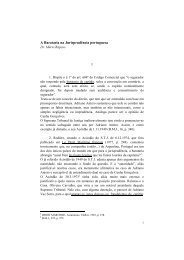

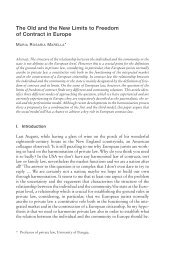


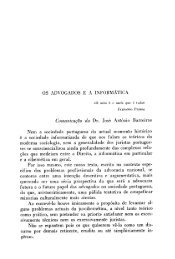
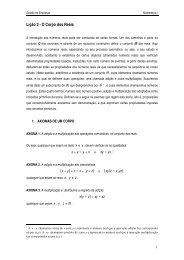

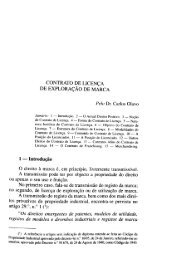
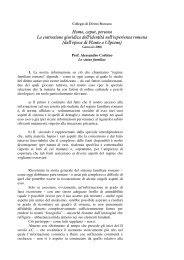
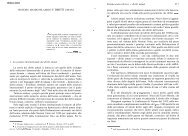

![Luigi Sapio Nozione di islām La parola “islām” [ ] è il mas.dar1 ...](https://img.yumpu.com/15836073/1/185x260/luigi-sapio-nozione-di-islam-la-parola-islam-e-il-masdar1-.jpg?quality=85)
